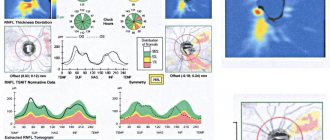What is psychology
Psychology is the science of all human mental processes. This science pays special attention to the relationships between people and to the person himself.
The first mentions of psychology date back to the 4th century BC, and to this day it continues to develop and be replenished with new laws, methods and solutions. There are 2 types of psychology:
- Academic.
- Applied.
Psychology methods are also divided into two large groups:
- Empirical: collection and interpretation of available facts, statistical analysis of data and search for patterns.
- Experimental: artificial simulation of various situations for research purposes.
The following are used to collect data:
- observation;
- introspection;
- interview;
- experiment;
- survey;
- testing;
- biographical research.
One of the significant and unsolved problems of psychology is the problem of the objective method.
Classifications of psychological research methods
Definition 1
The method of psychology is a way of understanding the internal mental phenomena of a person through the analysis of external psychological factors.
The main methods in psychology include observation and experiment, each of which has different forms.
Specific methods are testing, survey, analysis of activity products. Methods of mathematical modeling, statistical analysis, etc. have also found wide application. Certain variants of the basic methods are developed based on the characteristics of the object, tasks and subject of research. Success depends on the researcher’s ability to combine the techniques used that correspond to the assigned tasks.
Finished works on a similar topic
- Course work Objective methods of psychology 400 rub.
- Abstract Objective methods of psychology 270 rub.
- Test work Objective methods of psychology 230 rub.
Receive completed work or specialist advice on your educational project Find out the cost
B.G. Ananyev identifies 4 groups of methods:
- organizational, including comparative, longitudinal, complex methods;
- empirical, related to the collection of primary information and including observational, experimental, psychodiagnostic, praxismetric methods, modeling method, biographical method;
- data processing methods cover statistical method, qualitative analysis method;
- interpretive methods – genetic, structural methods.
According to the simplified classification of I.B. Grinshpun research methods are divided into non-experimental, psychodiagnostic, and experimental.
These methods differ from each other in their structure, but do not have significant differences in content.
Psychological research includes three main stages - preparatory, main and final. The preparatory stage is characterized by problem formulation, hypothesis development, and research planning. At the main stage, data is collected, and at the final stage, the data obtained is processed, the results are interpreted, conclusions are drawn, and the results are included in the knowledge system.
Are you an expert in this subject area? We invite you to become the author of the Directory Working Conditions
At the preparatory stage, a problem is posed that requires resolution and a sequence of actions is determined, such as identifying a deficiency of information, awareness of eliminating this deficiency, and verbalizing the problem situation.
The researcher, based on the desired concept, puts forward an assumption that can fill the existing information gap. This assumption should be tested in further research as a scientific hypothesis.
At the research planning stage, the entire process, the sequence of actions over time are thought through, the methodological and technical arsenal, the specific contingent of subjects are selected, and stimulation options are thought through.
The main stage involves direct contact between the researcher and the object to obtain the necessary characteristics about this object, which are the main material for testing the hypothesis and solving the problem. Characteristics about an object can be in the form of temporal, spatial, energy, information, integration parameters. This is the primary data about the object, which will be further analyzed, processed, and comprehended.
The final stage is associated with processing the results, bringing them into a system that becomes the basis for analysis, interpretation, scientific conclusions and practical recommendations.
If errors and inconsistencies are identified, repeat measurements are carried out.
History of the discovery of the method
The entire history of the development of psychology is a constant search for means for an objective study of mental function.
The first time the possibility of an objective method was presented in the peculiar movement of “behaviorism” was by psychologist John Watson . He recognized observation and experiment as methods that made it possible to study mental function.
The objective method was based on the rules of scientific observation characteristic of the classical ideal of scientific rationality. After the advent of behaviorism, the first tests appeared, attempts to experimentally create a method.
At the beginning of the 20th century, psychologists sought to combine behaviorism and psychoanalysis, and thus the theory of frustration-aggression by N. Miller and J. Dollard . Theories were created as the basis for a method by which the psychological reality of man could be studied from an objective point of view.
Methodological analysis
In the process of solving this problem, methodological analysis . Psychologist A.F. Lazursky discovered the method of natural experiment, which has the unique properties of avoiding the disadvantages of a laboratory experiment and at the same time implementing a scientific approach to the study of the entire structure of the psyche.
Domestic psychologists were strongly influenced by the ideas of Karl Marx . They became a kind of ideology, and under their influence new directions in psychology began to appear for the objective study of the structure of the psyche: reactology by K. N. Kornilov and reflexology by V. M. Bekhterev. L. S. Vygotsky was the first to identify and apply the method of reflexological research.
After these events, domestic psychology was divided into several different directions. One of the directions was Vygotsky’s further study of reflexological research. Another direction is the study of the dynamic location of mental processes by psychologist A.R. Luria.
The search for an objective method for studying psychological phenomena has been undertaken by numerous directions and schools of psychology. It continues today. Sciences such as neurophysiology, psychophysiology and psychophysics help in the search. But a final answer to the problem has not yet been received.
Objective methods of psychology
Subject, object, tasks and methods of psychology
The subject of psychology is: the psyche, its mechanisms and patterns as a specific form of reflection of reality, the formation of psychological characteristics of a person’s personality as a conscious subject of activity.
In the history of science, different ideas about the subject of psychology have developed:
♦ soul
as a subject of psychology was recognized by all researchers until the beginning of the 17th century, before the basic ideas and then the first system of psychology of the modern type were formed. Ideas about the soul were both idealistic and materialistic. The most interesting work of this direction is R. Descartes' treatise “The Passions of the Soul”;
♦ in the 18th century. the place of the soul was taken by the phenomena of consciousness,
that is, the phenomena that a person actually observes in relation to himself are thoughts, desires, feelings, memories, known to everyone from personal experience. J. Locke can be considered the founder of this understanding;
♦ at the beginning of the 20th century. behavior, appeared and became widespread
♦ according to the teachings of S. Freud, human actions are controlled by deep motivations that elude clear consciousness. These deep urges
according to psychologists - followers of 3. Freud, and should be the subject of psychological science;
♦ information processing processes
and
the results of these processes
are considered as a subject of psychology by cognitive psychology and Gestalt psychology;
♦ personal experience of a person
The subject of psychology is considered to be humanistic psychology.
The main object of psychology is social subjects, their vital connections and relationships, as well as subjective and objective factors that promote or hinder their achievement of peaks in life and creative activity.
The main tasks of psychology:
– study of mechanisms, patterns, qualitative features of the manifestation and development of mental phenomena;
– study of the nature and conditions for the formation of mental characteristics of the individual at different stages of its development and in different conditions;
– use of acquired knowledge in various fields of practical activity.
Before talking about the methods of psychology, it is necessary to give a definition and brief description of the concepts “methodology”, “method” and “methodology”.
Methodology
– the most general system of principles and methods of organizing scientific research, defining ways of achieving and constructing theoretical knowledge, as well as ways of organizing practical activities. Methodology is the basis for constructing a study and reflects the researcher’s worldview, his philosophical position and views.
Method
– this is a set of more private, specific techniques, means, and methods by which one obtains the information necessary to build a scientific theory and make practical recommendations.
Any method is implemented in a specific technique,
which is a set of rules for a specific study, describes a set of tools and objects used in specific circumstances, and also regulates the sequence of actions of the researcher. In psychology, a specific technique also takes into account the gender, age, ethnic, religious, and professional affiliation of the subject.
The phenomena studied by psychology are so complex and diverse, so difficult for scientific knowledge, that throughout the entire development of psychological science, its successes depended directly on the degree of perfection of the research methods used. Psychology became an independent science only in the middle of the 19th century, so it very often relies on the methods of other sciences - philosophy, mathematics, physics, physiology, medicine, philology, history. In addition, psychology uses methods of modern sciences, such as computer science and cybernetics.
All methods of psychology can be divided into three groups: 1) objective methods of psychology; 2) methods of describing and understanding human psychology; 3) methods of psychological practice.
Objective methods of psychology
The methodological basis of objective methods of psychology is the principle of the unity of consciousness and activity. This group includes the following methods:
• observation (continuous, selective);
• experiment (laboratory, natural, formative);
• testing (achievements, abilities, professional suitability, etc.);
• analysis of activity products (graphological, content analysis, analysis of drawings, etc.);
• survey (questionnaire, conversation, interview);
• mathematical modeling and statistical analysis.
Observation
is the deliberate, systematic and purposeful perception of a person’s external behavior for the purpose of its subsequent analysis and explanation. Observation must be selective, planned and systematic, i.e., based on a clearly defined goal, highlighting a certain fragment of the reality being studied, built on the basis of a plan and carried out over a certain period of time.
Experiment
- one of the main methods of psychology. Psychology acquired the status of an independent science thanks to the emergence of experimental methods. S. L. Rubinstein identifies four main features of an experiment: 1) in an experiment, the researcher himself causes the phenomenon he is studying, in contrast to observation, in which the observer cannot actively intervene in the situation; 2) the experimenter can vary, change the conditions for the occurrence and manifestation of the process being studied; 3) in an experiment it is possible to alternately exclude individual conditions (variables) in order to establish natural connections that determine the process being studied; 4) the experiment also allows you to vary the quantitative ratio of conditions and allows mathematical processing of the data obtained in the study.
There are three types of experiment: laboratory, natural and formative.
Laboratory experiment
carried out in specially created and controlled conditions, usually using special equipment and instruments.
The idea of conducting a natural experiment
belongs to the domestic psychologist A.F. Lazursky (1874–1917). Its essence lies in the fact that the researcher influences the subjects in the usual conditions of their activity. Subjects often have no idea that they are participating in an experiment. For example, a teacher has the opportunity to vary the content, forms, and methods of teaching in parallel classes or student groups and compare the results.
Formative experiment
is a research method under the conditions of a specially organized experimental pedagogical process. It is also called a transformative, creative, teaching method or a psychological and pedagogical method of active formation of the psyche. A number of pedagogical techniques are based on it, for example, immersion in a problem, group training. The results of the experiment make it possible to confirm, clarify or reject a previously developed model of influence on an individual or group of people.
Testing[4]
– a method of psychological diagnostics that uses standardized questions and tasks (tests) that have a certain scale of values. It is used to recognize or assess states, characteristics, characteristics of a particular person, group of people, a particular mental function, etc. The result of the test is assessed in quantitative terms. Tests have different types of norms and scales of values: age, social, etc. The individual test performance indicator correlates with its norm. There is a special area of psychology - testology, which is the theory of using and creating tests. Currently, the development of a scientifically based psychological test is labor-intensive and time-consuming.
Analysis of activity products
comes from the general premise of the connection between internal mental processes and external forms of behavior and activity. By studying the objective products of activity, one can draw conclusions about the psychological characteristics of its subject or subjects. A specific form of the method of analyzing performance results is graphology. Psychologists have found that the characteristics of handwriting are associated with certain psychological properties of the author of the letter; They developed norms and techniques for psychological analysis of handwriting. Content analysis allows you to identify and evaluate specific characteristics of literary, scientific, journalistic texts, and then, based on them, determine the psychological characteristics of the author.
Survey
used in psychology in the form of questionnaires and conversations (or interviews). The sources of information in the survey are the written or oral judgments of the individual. To obtain reliable information, special questionnaires are created, the questions in which are arranged in a certain order, grouped into separate blocks, etc. When surveying, the survey is conducted in writing using a questionnaire. The advantage of this method is that a group of people can simultaneously participate in such a survey, and the data obtained during the survey can be statistically processed and analyzed. During the conversation, there is direct interaction between the researcher and the respondent (or interviewee). The most important condition for a successful conversation is to establish contact between them and create a trusting atmosphere of communication. The researcher must win over the interviewee and encourage him to be frank.
Mathematical method
It is not used in psychology as an independent method, but is included as an auxiliary means of increasing the reliability, objectivity, and accuracy of the data obtained.
A number of statistical methods
have been created specifically to test the quality of psychological tests.
Recommended pages:
Use the site search:









